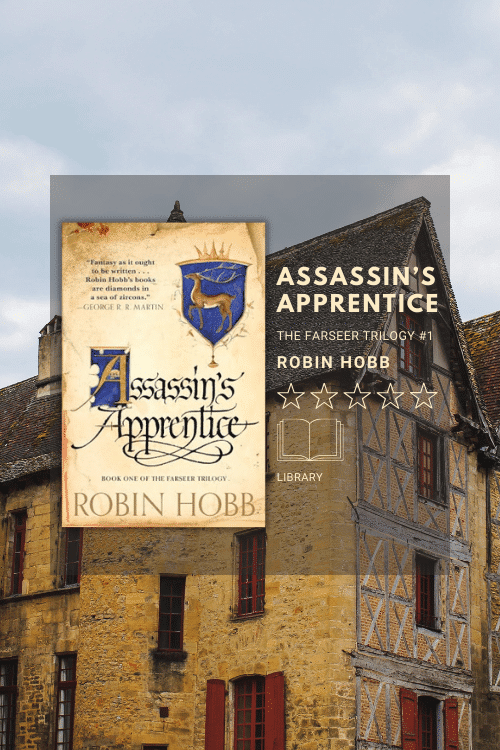Despite my initial skepticism, Assassin’s Apprentice did live up to the Bookstagram hype! I’m glad I’ve finally found accounts with similar tastes. I look forward to more of their recommendations in the future.

Book Information
Publisher: Random House Worlds
Imprint: Spectra
First Published: May 1 1995
Format: ebook
Source: Library
Genre: Fantasy
Series: The Farseer Trilogy #1, The Realm of the Elderlings #1
Overall, I enjoyed it. As the first book in the Farseer Trilogy, Assassin’s Apprentice does a great job of introducing the world, magic systems, and political players. Nothing is quite as it seems, and everyone has a hidden agenda. Fitz, the main character, is six when the story begins. Since we are getting the story from his perspective, we get more context and a better understanding of what’s going on as he grows up. Fitz even misunderstands something as a kiddo, and it guides him in his teen years until it comes to light. A huge perspective shift!
Reading a story from a six-year-old’s point of view sounds awful to me. Fitz isn’t just any six-year-old, though, and his feelings and thoughts are sophisticated without being annoyingly precocious. While definitely beyond what I’d expect from most six-year-olds, Fitz grows quickly, and the narrative grows with him. As a royal bastard, he’s an insignificant outsider and a serious potential threat. This juxtaposition keeps him teetering between options, wondering where he stands and who he can rely on.
The magic system isn’t fully explained yet because Fitz doesn’t completely grasp it. I love getting to learn things along side the characters. I appreciated that there are folk and “scholarly” magic, which are not necessarily in agreement. A couple of scenes relating to folk magic made me cry. I hate crying because of books and if I feel the book has manipulated me into crying, I’m very annoyed. While what made me cry was incredibly sad, it wasn’t depressing. Maybe it was sympathetic, angry crying, I’m not sure.
The characters are very well-rounded. I can’t think of any that can be reduced to a two-dimensional archetype or cliche. The interactions between characters are highly nuanced and loaded with meaning. While I may not have fully grasped all the intricacies yet, I can sense that every detail has a significance that will unfold as the story progresses.
Robin Hobb’s Farseer Trilogy is a testament to her storytelling prowess. It’s rare for the first book of a series to set such a high standard and carry such profound meaning. Even when narrated from the perspective of a child, Assassin’s Apprentice is a masterful blend of sharpness and depth. I’m confident that this series will withstand numerous re-reads, each time revealing new layers of its brilliance.
